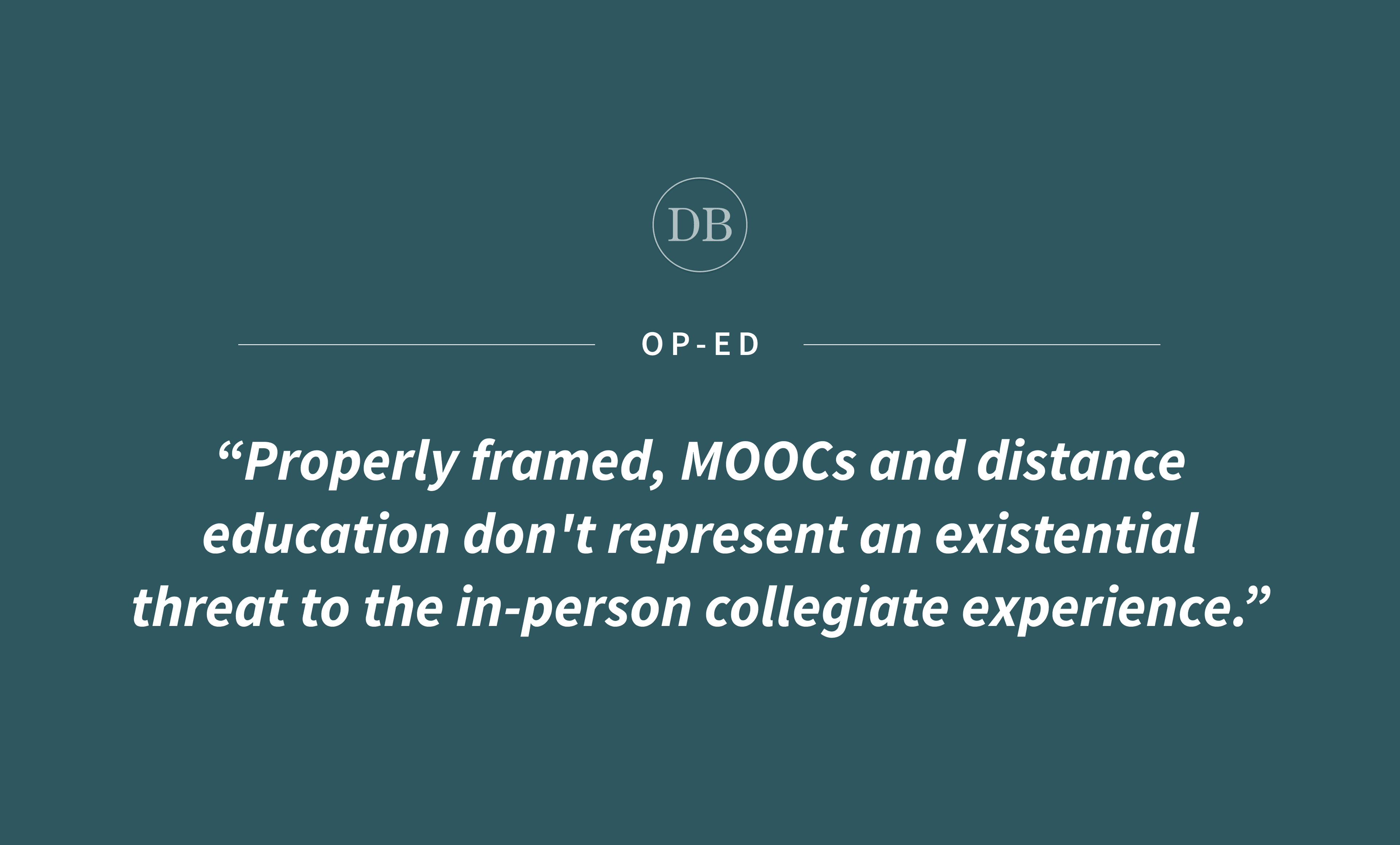Op-ed: Education must evolve alongside technology in an information-based economy
By Robert Mowry
May 18, 2022 10:45 p.m.
America’s finest assets are its natural resources and universities. If we desire to continue the strong educational tradition as we march further into an information-based economy, where the most coveted jobs fall under the umbrella of knowledge work, then education must evolve alongside the technologies that shape the habits of our lives.
The rising private university tuition – with few checks on cost – creates, for many, an untenable situation. Students must determine how much is too much. This runaway tuition freight train positions state schools as sensible options. Since 2009, the income-based repayment program has been helpful in permitting students to pursue their preferred job irrespective of their student debt load. Even so, this debt weighs heavily – both financially and emotionally – on those venturing out into the working world.
While University of California, California State University and community colleges enjoy state subsidies that private schools do not, private institutions enjoy a nonprofit status that affords a great many tax savings, lightening the operational load and paving the way to nurture an endowment treasure chest. While UCLA’s current tuition of $13,804 is higher than the $630 my mother paid in the 1970’s, it still represents an incredible value for a world-class education relative to other American institutions.
Community colleges also have excellent value and use similar textbooks to their four-year counterparts. At its core, college is one part learning and another part socialization. Higher education offers many opportunities to be inspired by professors who are making breakthroughs in their fields and positions students to make deep connections with their peers. These university connections often lead to lifelong friendships and job opportunities down the road. It is, however, not the only path.
The pandemic introduced Zoom-based classrooms and removed the in-person component that is so central to the historical college experience. Instantaneously, almost every college student was forced into an unfamiliar, remote learning experience. During this time, disruptive education technology leaders such as EdX and Coursera were ready with a library of coursework, allowing students to see how these massive open online courses compared to their remote classroom experience. For many, it compared very closely, as platforms were using the same tools for collaboration, such as Zoom office hours, and facilitated discussions leading to friendships and professional connections.
These distance learning platforms offer an abundance of certificate programs, with several universities testing out graduate degree options. This led to a deeper discussion about the importance of certificates as vocational tools to both communicate a competency to an employer as well as build baseline skills to be employable. Once you couple those certificate-based skills with on-the-job experiences, you now have a resume that recruiters can place and a worker can use to pilot a high-flying career trajectory.
Many tech employers are weaving their core education into these certificates, and companies are hiring for their highly coveted, high-paying positions with these certificates. This works nicely in that employers can internally dial up the rigor to ensure only the most determined candidates push through the crucible of the coursework, and it can free up their tuition assistance expenditure costs.
These online classes can enroll thousands of students concurrently in coursework, something in-person coursework could never accommodate. This dynamic also stimulates competition. Highly ranked Georgia Tech offers analytics masters degrees for under $10,000, with 4,252 students enrolled in 2020.
We have the well-regarded UCLA Extension program, which offers over 100 certificates in a variety of disciplines with accomplished graduates immediately applying their sharpened skills to LA’s top tech campuses, law firms, defense contractors, accounting firms and Hollywood studios.
UCLA has been a first-mover in adapting to distance education to deliver learning options to those who are mid-career professionals, working parents or currently studying amid a worldwide pandemic. Properly framed, MOOCs and distance education don’t represent an existential threat to the in-person collegiate experience. Rather, it dovetails nicely to meet people where they are in their educational journey, equipping students with the tools and collaborative resources necessary to be lifelong learners.
Mowry is an instructor at UCLA Extension.
